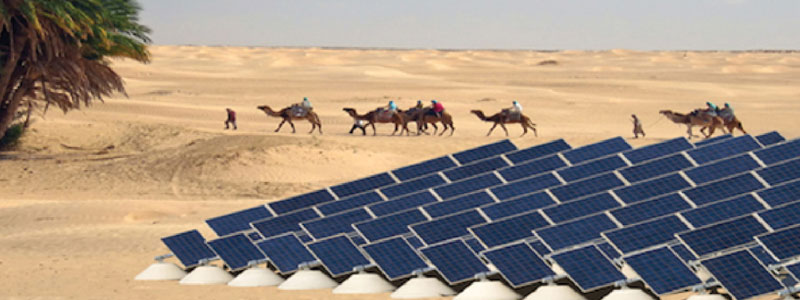The Middle East has long been associated with the most valuable and sought after fossil fuels - oil. As a region it produces the largest volume of oil in the world, creating vast wealth and valuable trade deals.
As a fossil fuel however, it is a finite resource and there have been varying reports projecting how long the supply will last, from around 40 to 50 years. At that point, the world's population is likely to have nearly doubled bringing with it an explosion in demand for energy provision. A transition to alternative energy sources takes time and some of the main oil producing countries have announced some very ambitious targets to address the changing landscape.
Saudi Arabia, the world's largest oil producer, has announced a $50 billion plan to support renewable energy. Wind and solar developers have been invited to submit bids to create 700 megawatts of renewable energy to the country's energy department. Energy Minister Khalid Al-Falih said that the Renewable Energy Project Development Office intends to set up "the most attractive, competitive and well executed government renewable energy investment programs in the world".
The UAE plans to invest a mammoth GBP134 billion in clean energy projects in an effort to temper reliance on oil and meet ambitious 2050 renewable energy targets. If achieved this would mean that 44% of the country's energy would come from renewable sources, 38% from natural gas and 12% from cleaner fossil fuels and 6% from nuclear.
With similar moves by Kuwait and Qatar, this region has the financial resources to make real progress in a short period of time and completely transform its image to a renewable powerhouse.
Sources:
International Business Times: http://www.ibtimes.co.uk/world-energy-day-2014-how-much-oil-left-how-long-will-it-last-1471200
Population Pyramid: https://populationpyramid.net/world/2060/
